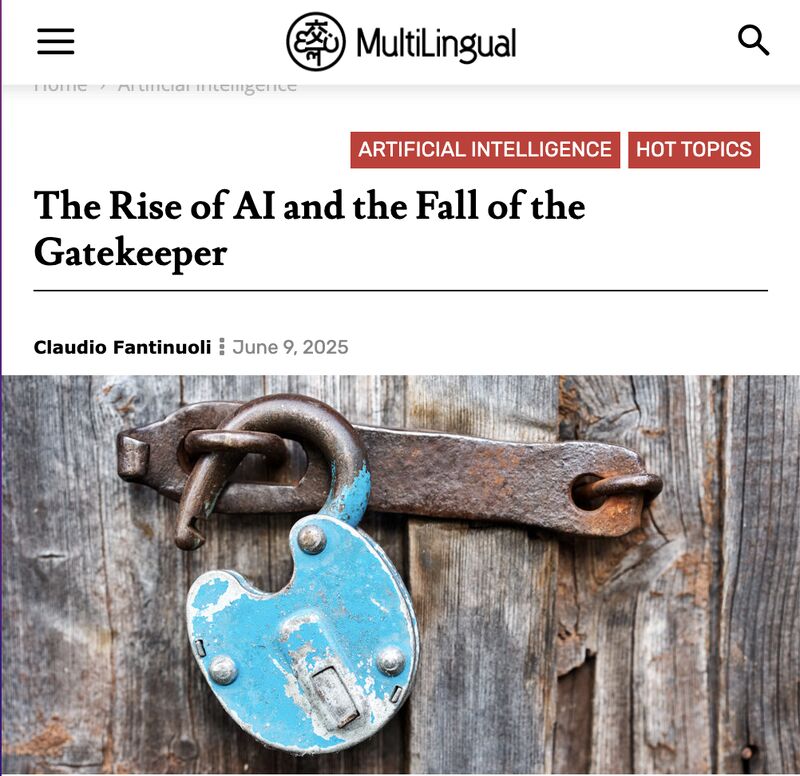This article has been first published in Multilingual Magazine.
For much of modern history, access to specialized knowledge has required one thing above all else: a professional. Whether it was legal advice, tax planning, language translation, or even medical consultation, the path to expertise ran through a narrow gate, guarded by individuals who possessed not just the relevant skills and knowledge, but also the credentials, prestige, and legal authority to deploy them. These services were expensive, and for many, prohibitively so.
What we are witnessing today is nothing short of a transformation. With the rise of increasingly capable artificial intelligence (AI), and the commercial drive to embed it in user-friendly applications, we are entering a new era in which access to expert-level support is being radically expanded, and in some cases democratized. The impact could be as profound as the printing press or the internet itself.
In the past, if you wanted to register a business, you would call an accountant. If you needed to publish a website in another language, you’d hire a translator. If you sought advice on writing a rental contract, you’d turn to a lawyer. The professionals were the custodians of knowledge, and their services came at a premium. Those who could not afford them were often left to navigate blindly or simply went without.
Today, however, an increasing number of people are turning to generalist AI systems like ChatGPT to help draft contracts, answer tax questions, translate documents, or even troubleshoot a health concern. This tendency will increase with the rise of more specialized AI systems. While current tools are still imperfect, and their limitations are real, they’re already proving remarkably useful to millions. Ask around, and you’ll hear story after story of individuals cutting out the middleman: doing their own legal research, crafting business plans, or getting personalized guidance in real time and often at no cost.
Critics, many of them professionals themselves, warn of the risks. A misfiled tax return, a mistranslated legal clause, a misunderstood health symptom — these are not trivial concerns. And they’re right: The stakes are often high, and the consequences of poor advice can be severe.
But what critics sometimes fail to appreciate is the sense of empowerment that comes from finally having access. For generations, the best advice was reserved for those who could afford it. Now, that advice, or a version of it, is becoming available to almost anyone with an internet connection. The dream of bypassing the gatekeeper isn’t new. What’s new is that the gate is actually starting to open.
This shift doesn’t spell the end of professionals, but it does herald a more competitive, pluralistic landscape. In the future, experts will compete not just with each other, but with AI systems that offer immediacy, affordability, and increasingly, accuracy. In domains where regulation demands human oversight — such as medicine, law, and engineering — human professionals will likely remain essential. But in many other areas, AI will become the default, much like the dishwasher or the Global Positioning System (GPS).
Of course, we will need rules. Automation, even intellectual automation, demands oversight. Just as we regulate pharmaceuticals, vehicles, and financial systems, we’ll need to regulate AI-powered services to ensure safety, accuracy, and accountability.
But one thing is clear: The monopoly on knowledge is ending. The prestige and power once concentrated in the hands of a few is beginning to spread more widely. And while the transition will be messy and uneven, the long-term result may be one of the most significant expansions of access and opportunity in recent memory.
The professionals may not like it. But for the rest of us — normal people, as well as innovators, creators, and entrepreneurs — it’s the future knocking.
For the interested reader, a great book to analyze in depth the relationship between Technology and the Professions is The Future of the Professions, by Susskind and Susskind.
